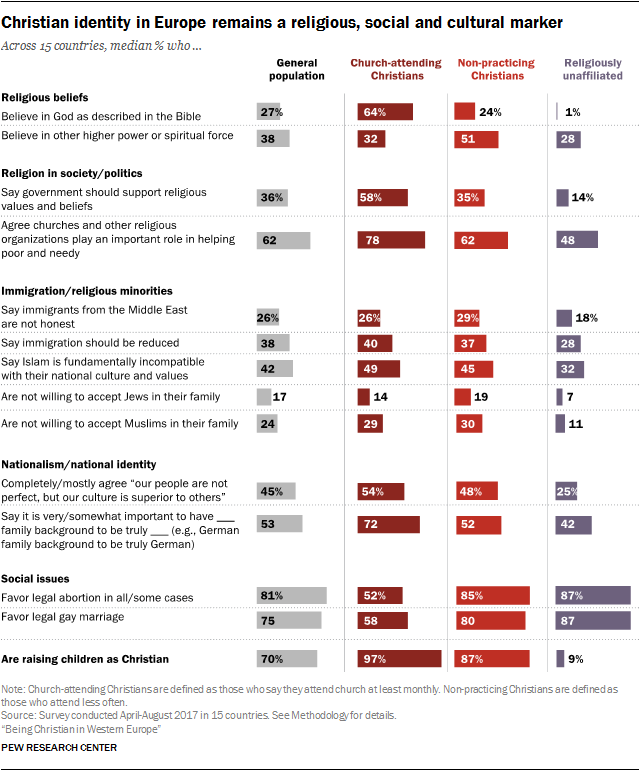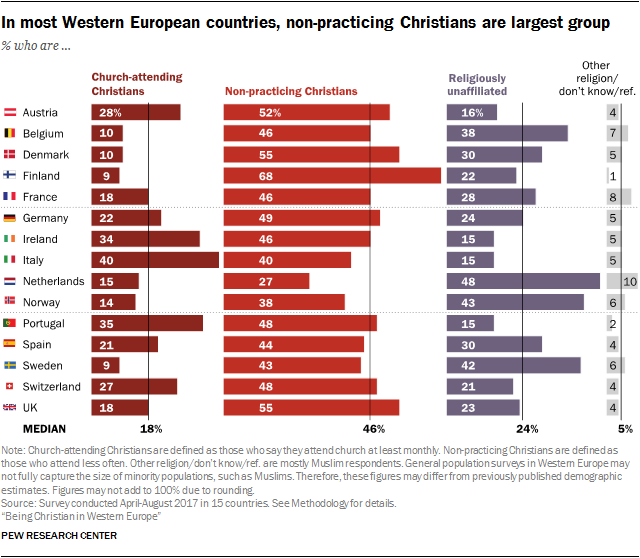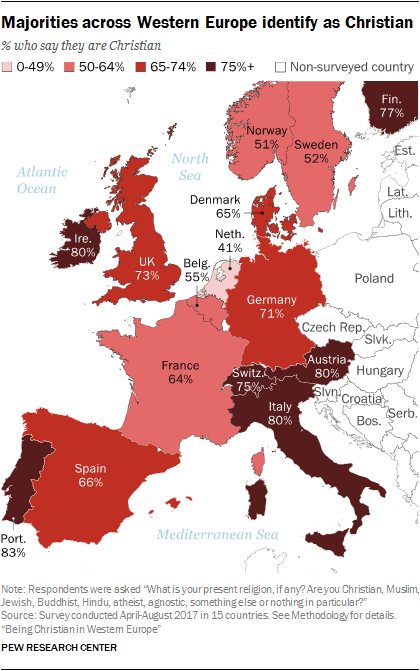When we see documentaries about the North American people we get a picture that they are 'very religious'.
Christianity, which was once shared by a majority of Americans, has seen a gradual decline as fewer people hold to the core tenets of the faith.
The latest research by the Cultural Research Center at Arizona Christian University continues the survey series American Worldview Inventory 2021 in examining biblical and competing worldviews of American adults.
According to the most recent release from the study, there has been a sharp decline in the status of Christianity across the nation in the past several decades. In 1980, more than 90 percent of Americans claimed to be Christian. That percentage dropped to 80 percent by 1990, in which the proportion lasted until after the turn of the millennium. By 2010, only three in four adults claimed to be Christians, with a further decline today as just under two out of three make the same claim.
In the previous century confidence in religion was still important.
About two-thirds of American adults had high confidence in religion
in the 1970s. By the 1980s, however, that confidence was waning, and
Christianity’s influence was declining.
At the start of the
millennium, 56 percent of adults had confidence in religion. That number
continued to decline, and now, barely four in ten adults hold a high
degree of confidence in religion.
No wonder, you could say, when we look at how ministers used their institutions to gain money and trick people into their 'business'. Small personal family churches were taken over by mega churches where one got lost in the group and where there was not a special bond between teh believers.
A great problem is also that the majority of those churches are Trinitarian churches, where they worship Jesus as their god. Though people came to see the weakness of that person and the contradictions they can find in Scriptures, having a Jesus who can not do a lot of things and does not know a lot of things, whilst the Bible tells us God can do everything and knows everything.
The Bible is also increasingly rejected as a trustworthy and relevant document of life principles. Not many people want to know about the values and ethics presented in the Holy Scriptures.
In 1991, 86 percent of people believed in the existence of God as the all-knowing, all-powerful creator of the universe who still rules the world today. Today, that percentage has dropped to 46 percent.
In a lot of the American churches there was not much time spend on the Word of God. Ministers only took some verses, often out of context, to bring a long sermon, often with a lot of shouting and crying about damnation and danger to burn into hell. Often people could not find a relation between the words of the pastor and the words written in the Bible. That undermined the relevance of the Holy Scriptures in the daily life.
Regarding the belief that the Bible is the accurate and reliable Word of God, the decline shifted from 70 percent in 1991 to 41 percent in 2021. On the topic of salvation, 36 percent of adults believed in salvation through confession of sin and accepting Jesus as Saviour in 1991. Today, that amount is 30 percent. The survey also noted that this measured as high as 45 percent and was 39 percent in 2011.
The percentage of Americans possessing a biblical worldview also significantly decline (12 percent in 1995; 6 percent in 2021).


















